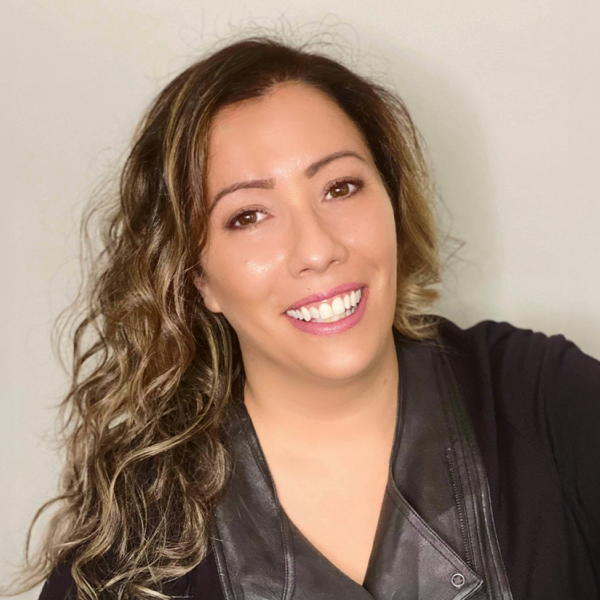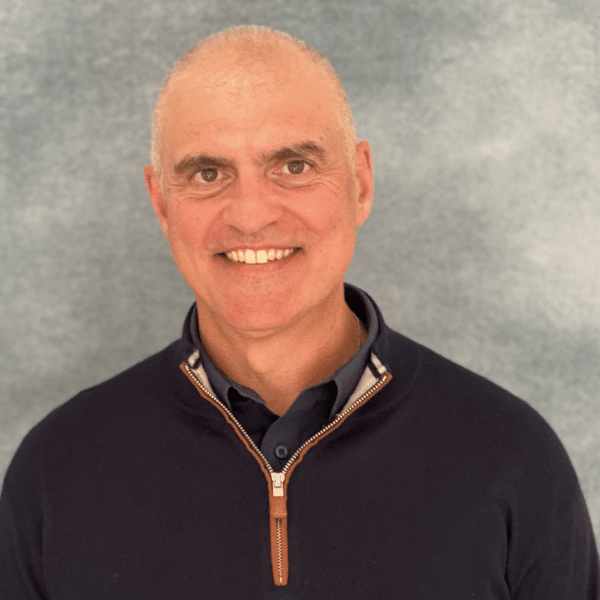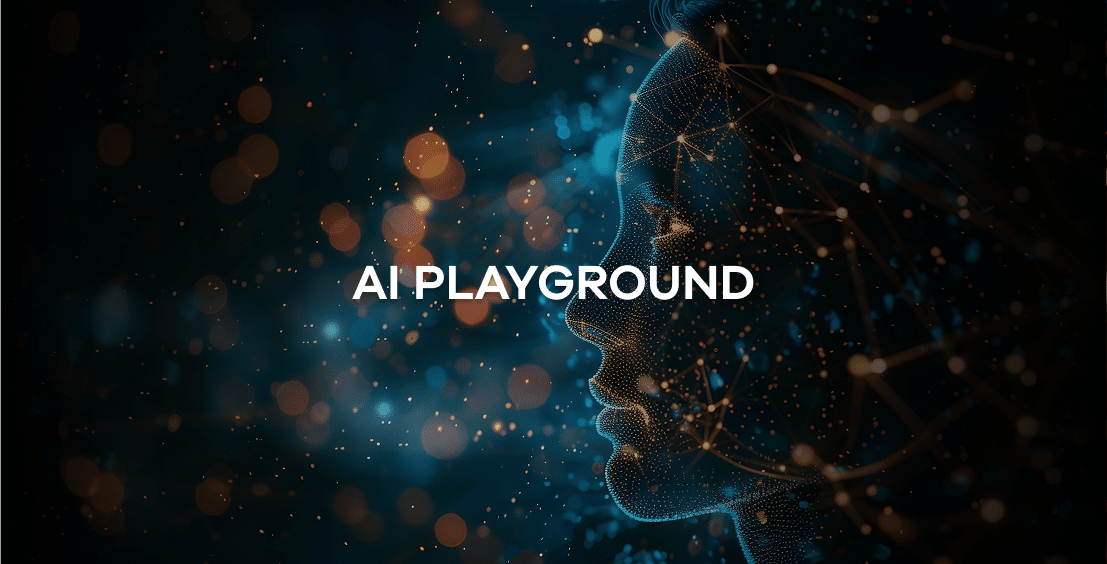Say ‘Hello’ To Brand Agent: AI That Speaks Your Brand’s Language
Aaron Grando
VP of Creative Innovation at Mod Op

“Brand Agent has that same ChatGPT experience with an added layer of brand alignment on top of it.”
Aaron Grando
In this episode of Leader Generation, host Tessa Burg speaks with Aaron Grando, VP of Creative Innovation at Mod Op, about how the agency is using AI to enhance creative work and improve client experiences.
“We’re getting up to speed on brands much more quickly … giving our teams immediate access to volumes of knowledge.”
Aaron shares the story behind Brand Agent, Mod Op’s AI-powered assistant designed to align capabilities similar to ChatGPT with each client’s unique voice, values and goals. Aaron and Tessa discuss how Brand Agent not only enhances internal efficiencies—such as content writing, data summarization and brainstorming ideas—but also transforms how brands connect with their audiences. From personalized emails to AI-enhanced search and content recommendations, Aaron shows how AI goes beyond just being a productivity tool; it becomes a creative partner.
Highlights:
- The creation of Mod Op’s Brand Agent
- How Brand Agent differs from ChatGPT and tools like Jasper
- Internal and external use cases for Brand Agent
- Efficiency gains in idea generation, data analysis and content creation
- Applications in websites, email, SMS and content recommendations
- How AI tools can improve personalization at scale
- The agency’s role in delivering scalable, brand-aligned AI solutions
- Helping clients choose between building, licensing or extending AI tech
- The future of creative brand experiences powered by AI
Watch the Live Recording
[00:00:00] Tessa Burg: Hello and welcome to another episode of Leader Generation brought to you by Mod Op. I’m your host, Tessa Burg, and today I am joined by Mod Op’s VP of Creative Innovation, Aaron Grando. Aaron has recently joined our innovation team from the creative SBU. And we have been working on some very interesting developments here at Mod Op.
[00:00:22] Tessa Burg: I’m really excited to get Aaron’s perspective on what it means to develop owned innovation at an agency, the impact that it’s having on the way we get work done and the value we anticipate delivering to clients across the industries we serve. So Aaron, thank you so much for joining us today.
[00:00:40] Aaron Grando: Yeah.
[00:00:40] Aaron Grando: Thanks for having me, Tessa.
[00:00:43] Tessa Burg: So we have been talking a lot about agents internally, what they are, what they can do. And earlier this year, we started our journey with the AI council, gathering ideas, comparing that to what we have. And we stood up a process in which we prototyped some solutions and the solution that bubbled up as really the most accessible and most valuable to start with was our Brand Agent.
[00:01:13] Tessa Burg: And you were a big part of that development. It was a part of a larger idea and we pulled it out once we got a better idea of use cases and scope. But before we jump into our journey, Launching the Brand Agent here at Mod Op for us to do our work more efficiently and more data driven. Tell us a little bit about your journey, your background, and your move into the innovation department and your role there.
[00:01:39] Aaron Grando: Yeah. Thanks for the intro. I have been an agency agency life liver for the last 15 years. At Red Tetramer O’Connell and partners specifically in the Philadelphia area. We recently were acquired by ModOp at the start of this past year. And joining the team has been really exciting and seeing the innovation that we are all excited to put into place to see, and like we can see it coming has been really cool to witness my background at the agency there was as one of the leads of our digital department.
[00:02:13] Aaron Grando: So the team that was responsible for building web experiences. Email, SMS communications those sorts of things, the ways that we hit people digitally. Coming into the team here, bringing that knowledge into how. Consumer brands specifically like to talk to consumers and how they like to present themselves digitally and bringing that into how we can use AI to serve those clients and start to output interesting and great work is that’s where I’m finding myself right now.
[00:02:43] Tessa Burg: And when we first started. I remember the initial concept was for a dashboard that gave predictive analytics, and we’re still working on that, but one of the key things as we looked at the power and the accessibility of ChatGPT, and then GPTs, and then our ability to use the LLMs in order to automate some things that we were doing that were very tedious, like gathering tons of data from different resources, reading all of it.
[00:03:11] Tessa Burg: And mainly trying to pull out insights and for people who have used ChatGPT a lot know that it’s great at giving you just that different perspective, but the Brand Agent harnesses that power makes it very specific to a brand. Tell us what have been some of the most popular use cases for the Brand Agent.
[00:03:34] Aaron Grando: So Brand Agent, like you said, it really started as part of a framework that we were imagining for another tool. We’re going to talk about that probably on another podcast at some point, but really what we discovered as we were mapping out all of the pieces of what like a really useful agency AI system would be, is that having the brand’s point of view is really an essential building block part of any AI system that serves brands.
[00:03:57] Aaron Grando: So when we’re thinking about use cases, we can take. A brand aligned AI agent and apply it towards a bunch of different problems. So one of those problems or use cases is obviously chat, which you just talked about. We’re all really familiar with chat coming out of ChatGPT. We’ve been using it for two years now.
[00:04:16] Aaron Grando: So we made Brand Agent chat accessible to a few dozen of our coworkers across our growth team, strategy, social creative teams, our And chat is great because it’s general purpose. Brand Agent chat has that same ChatGPT experience with an added layer of brand alignment on top of it. So we’ve gotten a lot of positive feedback from it because people are able to pick it up and immediately start using it with that background that they have with ChatGPT.
[00:04:44] Aaron Grando: And. We’ve had them do things like outline presentations that they’re going to give build plans for project approaches to brief teams in on new projects take analytics data from Google Analytics and analyze it and pick out patterns creative brainstorming. Writing social posts, blog posts, recipe content, like a lot of the stuff that you would use ChatGPT with, but with, again, with that added layer of brand info on top of it.
[00:05:10] Aaron Grando: And then another one that we really have found great usefulness in is transforming content from one format to another. It’s like really great if you have those little places where. You just need a little bit more or a little bit less copy and you want to run it through a system that understands where the brand is coming from.
[00:05:27] Aaron Grando: Yeah we’re finding a lot of general purpose use of the chat part of it. And then speaking as a builder and like an early user of Brand Agent and myself from the backend side of things, we’re looking at it from the way of how can we integrate this into more tools and more solutions? We’ve built it in a way that we can hook these agents up to other systems.
[00:05:49] Aaron Grando: And some of the stuff that we’ve been working on, it’s a little cliche, but it’s definitely magical feeling to see automations running that are pulling together outputs that factor in client goals and like different elements of the client’s brand story and tactics and strategies that they actually use in the market.
[00:06:09] Tessa Burg: And that really is the power of Brand Agent is. It takes the client’s data and we can use whatever they have available and brings it into a secure environment that ChatGPT is not going to train on. That is only for them. Like the agent is truly only for that brand. And when you feed it information about their target audience, they’re Their past campaigns, their competitors, the way they position, you’re getting answers back that don’t feel so canned and that give you a really great jumping off point for more and higher quality ideas.
[00:06:52] Tessa Burg: In the use cases you gave you included a lot of great feedback from our internal team. Tell me a little bit about how Brand Agent is solving marketing and brand. Challenges for the client side as well.
[00:07:06] Aaron Grando: Yeah. So we’re seeing lots of use cases there. The first wave in my mind are taking these AI capabilities that we’re developing and using them to help refresh some of our traditional digital experiences.
[00:07:19] Aaron Grando: Brand sites, email, SMS campaigns, that kind of thing with a little bit of intelligence and personalization. So stuff like site search. Which in a lot of cases is not really super functional right now, but as a really key conversion path we can make that site search better with AI. Content recommenders pretty similar to site search.
[00:07:43] Aaron Grando: They’re really a pain to set up and maintain long term for web teams, both on the client side and the agency side. We can hook those up to an agent and have the agent provide automated recommendations that refresh on a schedule for brand priorities that change like seasonally or year over year.
[00:08:01] Aaron Grando: Personalized email and SMS is a huge one. Mixing in client data to make a personalized message in a, like a brand tone that’s just way more engaging to audiences than The canned message that they might’ve already received like three or four times through the course of an overall email journey.
[00:08:18] Aaron Grando: Those are a couple instances. And then for all of our clients, we’re looking for both like functional and creative wins. So that’s important for me to note as somebody coming from the creative side, we’re not just talking about really tactical wins here. We’re talking about the ability to start to build really cool Really innovative brand experiences that were just not possible before AI became so accessible.
[00:08:44] Aaron Grando: That would be stuff like AI powering, what I could see happening is a resurgence in UGC campaigns, which were big a couple of years ago, diminished lately. But with AI, we have a new creative tool set that we can give consumers to really represent brands. And also integrating AI into just like stunts and activations to bring some wow factor and like unexpected memorable ways.
[00:09:11] Aaron Grando: Is definitely something that clients are interested in.
[00:09:16] Tessa Burg: So the Brand Agent helps expedite data collection and analysis, giving us better ideas to pitch the client and less time, which is a huge win in efficiency. And then we can also extend our use of it into client side applications, like websites and apps for search and recommendations, and even future applications that you cited.
[00:09:36] Tessa Burg: But there are also tools that already do this. So how does extending Brand Agent differ from clients just using something like ChatGPT or Jasper themselves to get the same types of benefits?
[00:09:50] Aaron Grando: Yeah, those tools are great tools, obviously. ChatGPT is an amazing product. And we’re not really gunning to replace ChatGPT for anyone.
[00:10:00] Aaron Grando: We are building Brand Agents as an extra layer on top of ChatGPT. So that when our brands and our teams are using AI ChatGPT, they’re getting that additional special sauce that we can build into it. Jasper is along those lines too. So Jasper’s, big thing is taking brand context and building that into pipelines, which is very cool.
[00:10:25] Aaron Grando: But Jasper is not a client service business like we are it’s a software as a service business. So I think our priorities align a lot more closely with our client success than like a SAS relationship does. And as like a creative agency, we’re a lot better equipped to help clients in putting together what I think will be a strong drive towards like bespoke creative AI experiences in 2025.
[00:10:51] Tessa Burg: Yeah. And I think. You hit it right on the head that the biggest difference is we’re an agency and there, there’s a major benefit to that because we are specialists at taking that tech and making it highly personal to the client. And now we’re able to do it in a manner that’s scalable so that they can also be a part of the process on how that solution comes to life for them.
[00:11:17] Tessa Burg: How do we help clients? Make that decision because there’s 67, 200. I say that stat all the time, different AI applications that they could license. And granted licensing means they’re going to have to also integrate it. They’re going to have to do the work to get the data in, to manage the data pipeline themselves, to then Audit the outputs.
[00:11:39] Tessa Burg: And, as we’ve talked about on previous. Episodes. We have a lot of that framework built in place, but what does that look like when we’re looking, when we’re helping clients determine when they should build it themselves versus when they should license an application versus just extending tech that we already have in house into their application to expedite that launch and keep the momentum of the data fueling through a securely held set for their specific use case.
[00:12:10] Aaron Grando: The overhead for making sure that these systems run consistently on time and securely is pretty high. Pretty huge. And it’s definitely not something to take lightly, especially if you’re working with, a big business that has a lot of folks that depend on you to do it the right way the first time.
[00:12:28] Aaron Grando: That is a really big part of the equation. One other part of it is what does a brand represent? All right. So a brand is a promise of an experience is a thing that like we like to say in the creative team sometimes. So when you’re thinking about a brand experience, you need to think of experiences that align with.
[00:12:48] Aaron Grando: That brand promise, like how you expect to feel when you’re working with a brand as a consumer or as a prospect or, some other, business relationship. That promise is really personal to every brand. So in a lot of cases. Those off the shelf solutions that you may be able to go by and put into action and will work.
[00:13:09] Aaron Grando: They may not align exactly with your brand, your values, your processes that you have in place, or the way that you want those processes to work, like moving forward. Like we’re all rethinking our processes right now. So it’s an opportunity for you to say, Hey, how do I want this to work? And do you want to build that process yourself, or do you want to find a process and integrate it into your business?
[00:13:31] Aaron Grando: And one might work for you better than the other.
[00:13:35] Tessa Burg: Yeah. And one thing I really like about that approach and what I see the innovation team doing is making these extensions a part of an existing project, which You know, really has been where we found the most benefit to AI is allowing us to do things at a higher quality, more efficient, more personalized.
[00:13:56] Tessa Burg: And it doesn’t become what I often see in like separate tech stack projects or in separate digital transformation projects is just that a whole separate initiative that has to run in parallel, we’re simply delivering what we’ve always delivered, which is great personalized experience that really makes use of the client’s expertise.
[00:14:16] Tessa Burg: More efficiently and in a way where that LLM or that machine learning model is going to personalize it and get better over time, instead of just being a static deliverable or a one time campaign.
[00:14:31] Tessa Burg: We’ve touched on how agents have changed the way we do our work with clients.
[00:14:37] Tessa Burg: It has really helped us to elevate strategically, It’s driven efficiency, it’s driven quality, and on the client side, they’re realizing the benefits from a much more personalized, much more scalable experience for their customers. And we’re not slowing down. I feel like the more we use Grant Agent, we’re starting to spin off.
[00:14:58] Tessa Burg: Other agents we’re having more conversations with clients. Clients want to better understand the AI roadmap and what’s possible. How do you see our investment in innovation and in developing additional agents, changing the way us as a marketing agency provides value to our clients?
[00:15:18] Aaron Grando: Yeah. So I think at the core of it is still brand advertising.
[00:15:21] Aaron Grando: Like brand is going to be even more important in the era of digital abundance that we’re getting into now that AI is kicking off. Like branding is authenticity and authenticity is going to be in more demand in the future than it is now.
[00:15:37] Aaron Grando: We are going to be able to get up to speed on brands much more quickly. We have deployed processes that have started to pull Brand Agents together immediately at the start of a client engagement, so that We’re giving our teams immediate access to volumes of knowledge about clients so that we can even, we can start to service our clients better from the jump.
[00:15:59] Aaron Grando: And right now, starting from where we’re at, we’re going to just see the performance of our tools evolve because as we’re collecting data, as we’re collecting usage, As we’re reacting to that data and providing feedback back into our models, they will improve over time. So we’re going to see just a gradual improvement in the way that our systems are able to perform and provide us with, solid outputs, creative thoughts, ideas outputs, analysis, and brand aligned, brand informed content ideas and everything.
[00:16:34] Tessa Burg: Oh, I agree. It really will hit Everything, that is for sure. And the more we do, I think it’s interesting that new problems emerge. Our, how we’re operating, if we’re not spending all this time on tedious work, we’re not spending all this time trying to get the data together and present it to the internal teams.
[00:16:53] Tessa Burg: We have something that everyone can access and is democratized and really helps us accelerate and level up to strategic thinking at the beginning. New challenges will emerge. And so it’s a really exciting time to be working in innovation, to be working in innovation and marketing, and to be able to provide value to clients in a very different way.
[00:17:13] Tessa Burg: So Aaron, thank you so much for joining us today and telling us more about Brand Agent and what’s to come. We appreciate it.
[00:17:19] Aaron Grando: Yeah. Thanks for having me.
[00:17:21] Tessa Burg: And if you want to find Aaron, you can find them on LinkedIn Aaron Grando, or visit our website. To see more about AI at Mod Op, we are, we recently launched the AI Edge page and you can learn more about our services.
[00:17:37] Tessa Burg: We’ll also be publishing the AI Playground coming soon and get reviews from apps, Aaron has been one of our leaders in testing and giving feedback on what is the best tech for us and our clients. To use to drive efficiency and growth, but until next time, find us at leader generation, and we will talk to you again soon.
[00:17:57] Aaron Grando: Talk soon.
Aaron Grando
VP of Creative Innovation at Mod Op

Aaron Grando, VP, Creative Innovation on Mod Op’s Innovation team, is a seasoned technologist with over 15 years of experience at creative agencies. With a background in strategy, design, engineering, and marketing, Aaron has worked extensively in industries like media, entertainment, gaming, food & beverage, fashion, and technology. At Mod Op, Aaron leads efforts to integrate AI into creative processes, creating tools that connect creatives and clients with insights, spark ideas, and enable new brand experiences. Projects include collaborations with companies like NBCUniversal, Bethesda Softworks, Under Armour, Planet Fitness, Dietz & Watson, and more, focusing on infusing creative strategies with innovative technology to create cutting-edge brand experiences.


